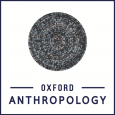School Newsletter 2019 - Primate Models for Behavioural Evolution Lab
Fieldwork
This year the members of the Primate Models for Behavioural Evolution Lab expanded on their interesting field work and collected new data in the Gorongosa National Park in Mozambique (Philippa Hammond, Lynn Bevan-Lewis, Thomas Püschel, Jana Muschinski, Joao Coelho, Megan Beardmore-Head), Turkana in Kenya (Lydia Luncz, Joao Coelho), the Republic of Guinea (Katarina Almeida-Warren) and in the Ao Phang Nga National Park in Thailand (Lydia Luncz). Back in Oxford, Dan Schofield completed a milestone of his PhD research and published an article on facial recognition of chimpanzees using deep learning in collaboration with Susana Carvalho and the Virtual Geometry Group (University of Oxford), which made international news.
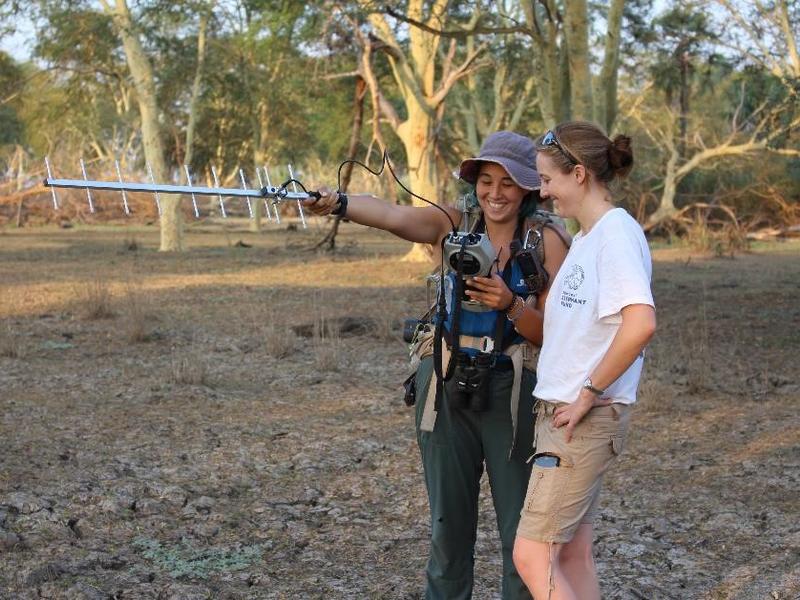
Lynn Lewis-Bevan and Phillipa Hammond test out their radio-tracking equipment after successfully collaring 2 female baboons in each of their study groups
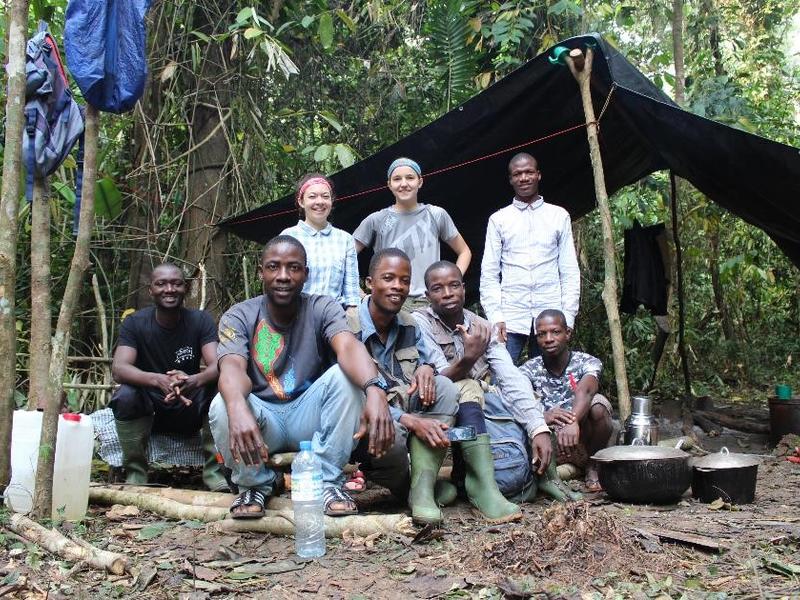
Katarina Almeida-Warren with field team at their temporary camp during an expedition to survey for chimpanzee stone tool sites in the Diécké forest (Guinea)
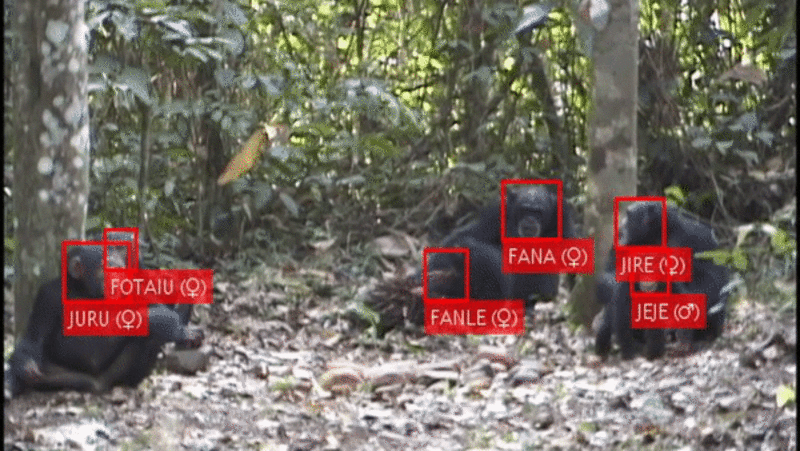
Dan Schofield et al.’s facial recognition software in action
Wenner Gren workshop
Between 23-25 July, 2019, Gorongosa National Park in Mozambique hosted the Wenner-Gren workshop: New perspectives on primate adaptations to complex environments and implications for early human evolution. This initiative was organised by Dr Susana Carvalho, Dr René Bobe, and Dr Felipe Martínez, and was the first ever workshop to take place at an African research site. This interdisciplinary workshop put together ideas from senior and junior primatologists, primate geneticists, and paleoanthropologists from eight countries and 15 institutions, thus allowing to draw on the novel potential of Gorongosa’s ecosystem as a truly unique research location. Each stage of the workshop was organised according to different, yet complementary questions: 1) Are there identifiable behavioural patterns in primate responses to complex, dynamic conditions? 2) How can we use studies of hybridization processes in wide-ranging primates to understand similar processes in hominin evolution? 3) What novel studies of primates in mosaic environments could help modelling hominin evolution?
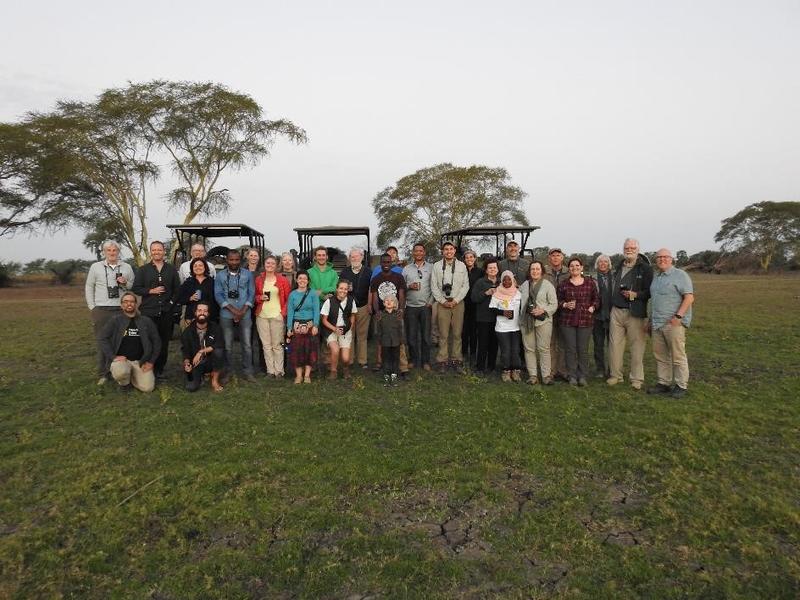
Celebrating the end of the Wenner-Gren Workshop with a sunset on the Gorongosa NP Foodplain
Field School in Gorongosa
The Oxford-Gorongosa Field School returned with a new cohort of 8 Oxford students (BA Human Sciences, BA Arch&Anth, MCEA) and 9 Mozambican students. Running in parallel to the Paleo-Primate Project field season, the students received training from international researchers and experts on human evolution, primatology, archaeology, palaeontology, palaeobotany, taphonomy, excavation techniques, fossil preparation and caving. This year the project was delighted to host our Head of Department, Elizabeth Ewart, and show the exiting research staff and students are involved in.
The highlight of the season was the excavation where the team and students uncovered the largest known Late Miocene site in the Southern Rift, recovering over 350 fossils in just 12 days!

A day in the life of the PPPG excavation

Oxford Uni. and Eduardo Mondlane Universities UG students Verity, Amélia and Emma look for fossil fragments in the sieve
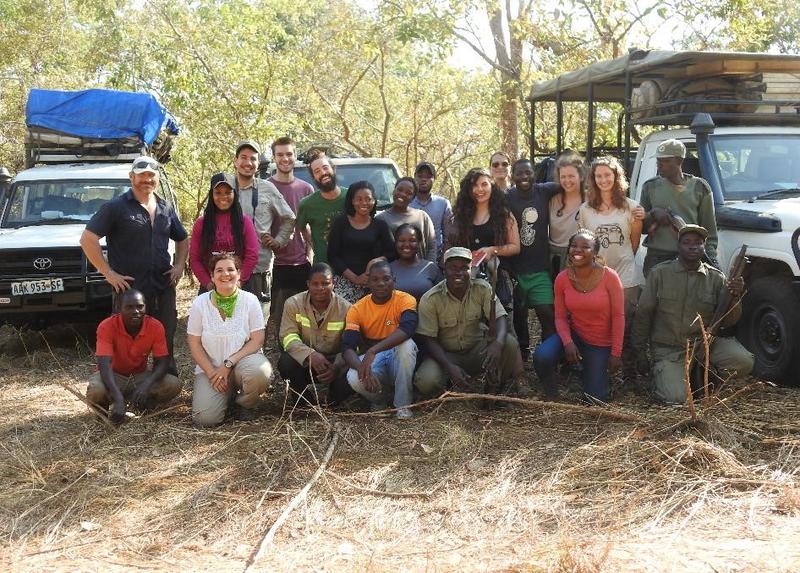
Susana Carvalho with her students and excavation team at the end of the 2019 season
Tool workshop Thailand
In August, Lydia Luncz organized the first macaque stone tool workshop in Phang Nga Thailand, bringing together researcher, government officials and local communities. This workshop aimed to set up long-term monitoring programs as well as public outreach to provide information on the unique stone tool behaviour of long-tailed macaques.
EFP-PSGB conference
In collaboration with Brookes University our lab organised the international European Federation of Primatology and Primate Society of Great Britain conference here in Oxford. Under the timely topic “Our Primate Heritage, Our Primate Legacy” this conference hosted over 300 delegates from across the world discussing new insights and pioneering research in primatology. The ongoing research of our lab was featured in symposiums, poster sessions and podium talks. We are proud of our PhD students who were awarded best podium presentation (Lucy Baehren) and best poster (Megan Beardmore-Head).
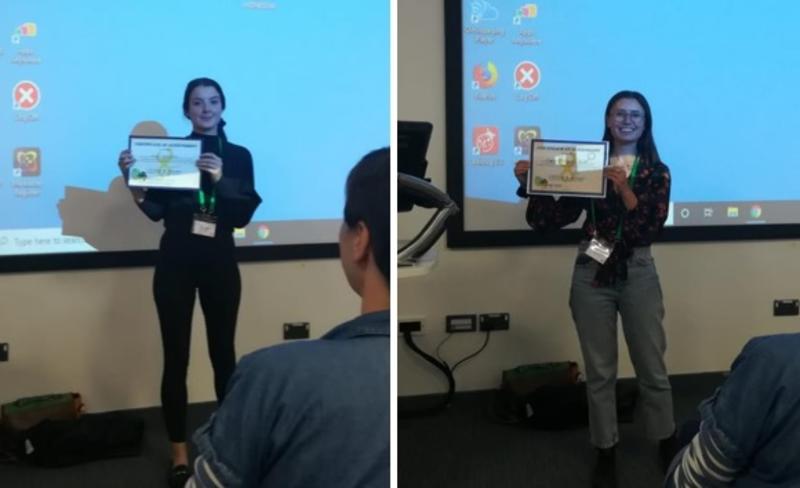
Lucy Baehren and Megan Beardmore-Herd are awarded the student prize for best podium and poster presentations
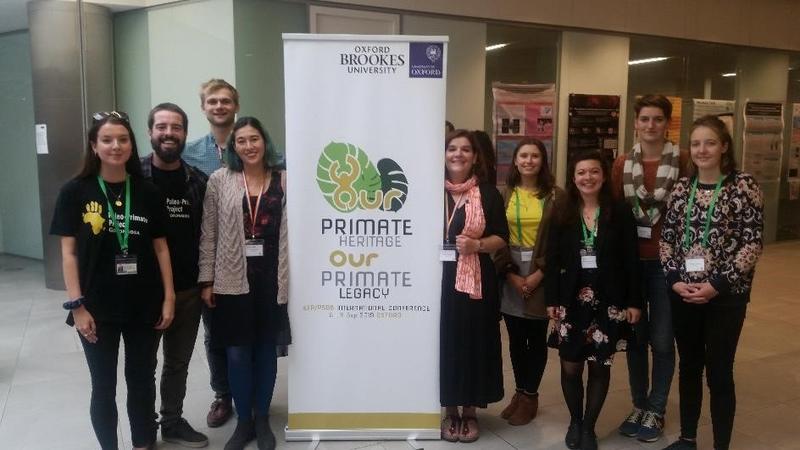
Susana Carvalho with her DPhil students during the EFP-PSGB 2019 conference
Several lab members also attended and presented at the European Society for Human Evolution conference in Liége. Below, recent Human Sciences graduate Kerris Chappell-Smith discusses her poster with world-renowned paleoanthropologist Bernard Wood.
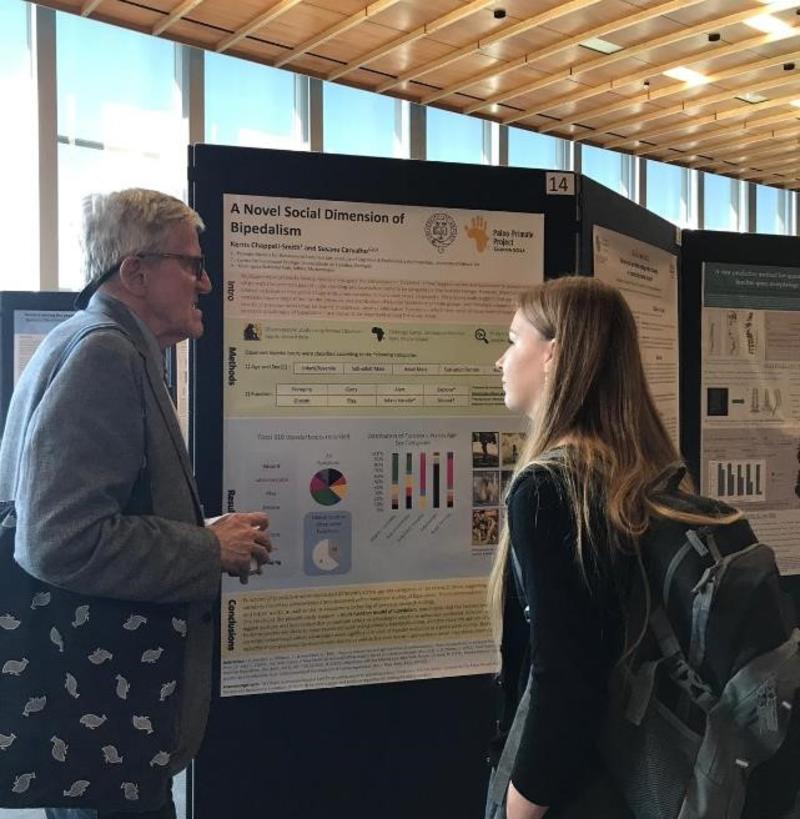
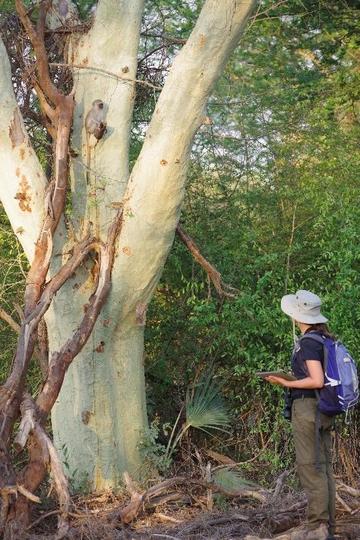
Megan Beardmore-Herd starts her fieldwork on vervet monkey alarm calls
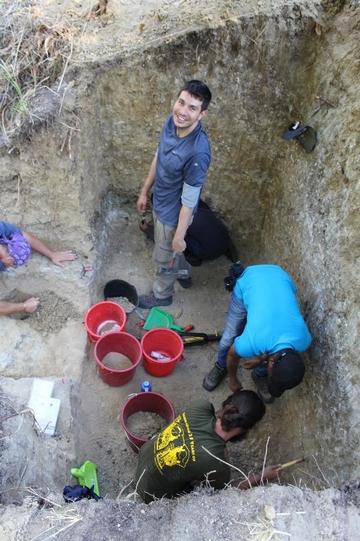
Thomas Puschel and João Coelho with students in the excavation pit
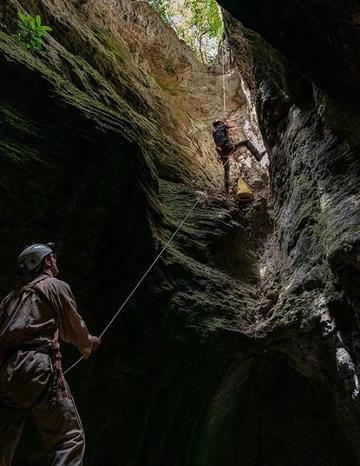
The PPPG cavers explore a new cave in Gorongosa National Park (Photo: P. Nasrecki)

